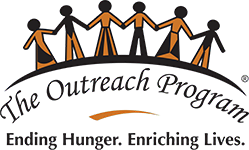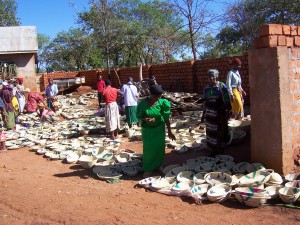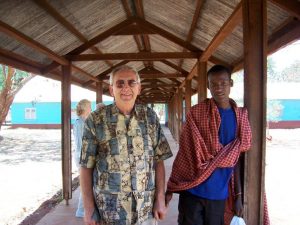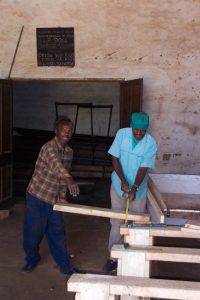Trading Grain for Hand-Woven Baskets
Trading Grain for Baskets: Disruptive Innovation in the World of Charity
In the early morning sun of the rural African village suffering from a three-year drought, women with starving families desperately sought food. An event transpired that would forever transform the village, and, in time, would impact millions of hungry people around the world. Business experts would describe the event as disruptive innovation – a term used to describe a different way of doing business that creates a new market and new network of opportunities.
Like any good story, there is some background that makes it even better. To fully understand what transpired on that Saturday morning in Nkungi village, you need to know a bit more about Floyd and Kathy.
Both grew up in small, rural towns of Iowa and began working at an early age. During that era, it was common for children as young as eight-years-old to work at paying jobs to help support their families. It was during those formative years they developed a work ethic that, to this day, their friends describe them as, “the hardest working people we know.” However, if you say that to them, Floyd will remind you of one of the business principles he learned from J.B. Clay (we’ll talk more about these later); “the difference between work and play is attitude.” They love what they do and are relentless in pursuit of their goals.
Long before disruptive innovation became a buzzword in business, Floyd and Kathy were already doing it. For example, they started the first plastics-recycling plant in America. Until then, plastic bags blew against fences and bottles were dumped in landfills. Floyd and Kathy disrupted the norm and, in so doing, were vanguards of a revolution in recycling. In fact, near a pond at their farm by Union, Iowa, you can enjoy a cup of coffee while sitting on the first picnic table ever made from recycled plastics in America.
After watching the fifth child in Nkungi village die because of hunger related issues, Kathy turned to Floyd and cried, “We have to do something; we can’t allow children to die like this!”
So this is the point of the story where Floyd and Kathy’s disruptive innovation begins in the world of humanitarian food aid and they didn’t even realize it.
Typically, those who respond to the crisis of global hunger are charitable organizations called nonprofits or non-governmental organizations (NGOs). The whole concept of charity is based on the “haves” giving to the “have nots.” Charities provide food aid for immediate relief of hunger and do so as a free handout. Floyd and Kathy did something different, which has created sustainable, positive impact.
“We found two truckloads of maize (corn) in nearby Hydom, which we purchased,” Floyd says. “This was our first experience of helping people who were actually starving. We didn’t know exactly what to do! We knew we didn’t want to just give a handout; these were proud people. We know that one of the things hunger steals from people is their dignity; a person’s self worth is measured by their ability to provide for themselves and their families. We knew the women created beautiful handmade baskets; that was what we decided to barter for.”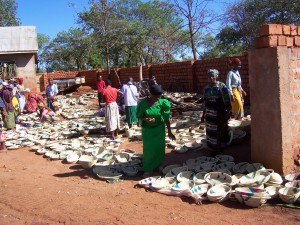
“Through the local Pastor the word went out that people could come the next morning and we would barter baskets for the maize,” Kathy says. “That Saturday morning there were literally hundreds of Mamas ready to barter baskets for maize. Bartering takes time, so we asked that if anyone had enough food to make it through the day to please come back the following day. No one moved; none of the Mamas had food. Outreach began that beautiful sunny Saturday morning.”
Floyd and Kathy didn’t realize, at the time, they were creating disruptive innovation in the world of charity. Instead of following the typical model of charity that, by its inherent design manifests the inequality between the haves and the have nots, they based their response on the restoration of human dignity and reciprocity. This guiding principle is the reason for the success of Outreach.
Incidentally, since that first day of bartering, we have purchased over 50,000 baskets in direct trade! You can purchase them here!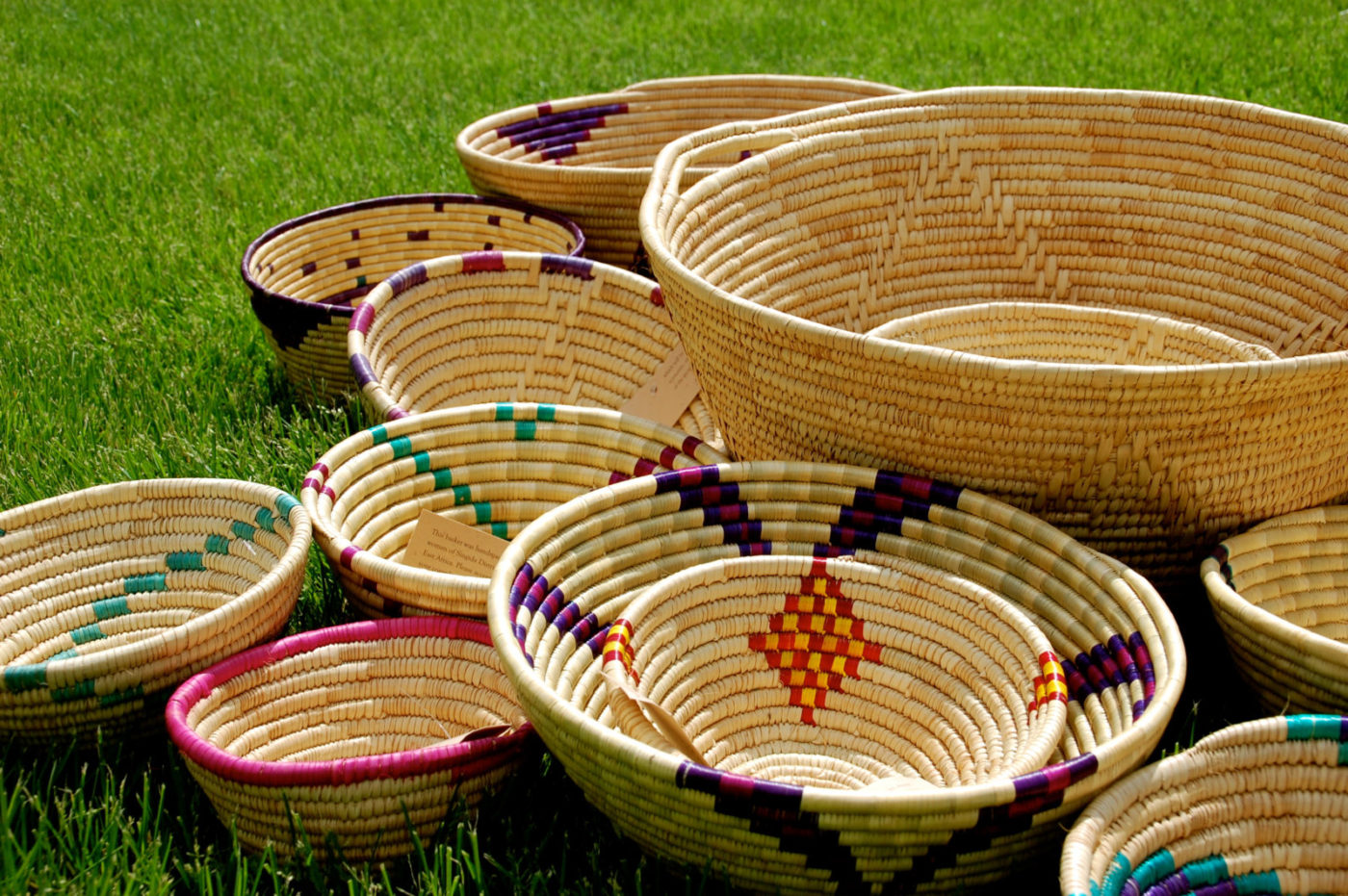
Please send this to your friends and don’t forget to “Subscribe to This Blog!”
